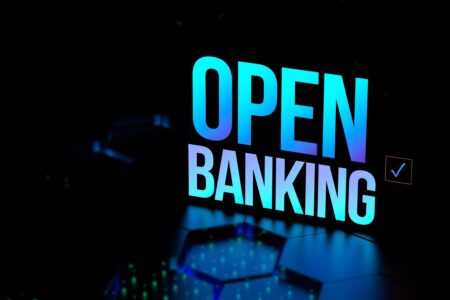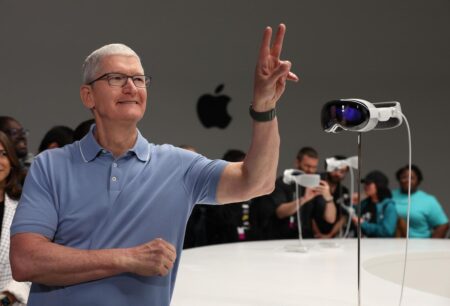Consumers looking for a new checking account may find that online banks offer features that aren’t available at the bank down the street.
Brick-and-mortar banks may offer these checking account features, too, but they may come at a cost: maintaining a high minimum balance. An online checking account, meanwhile, typically has no (or low) minimum balance requirements.
Here are Bankrate’s picks for the best online checking accounts.
Bankrate’s picks for best online checking accounts
Note: As of June 10, 2024. Bankrate’s editorial team validates this information regularly, typically biweekly. Bankrate includes only FDIC banks or NCUA credit unions in its listings.
A closer look at the best online checking accounts
Ally Bank: Best online checking account overall
Ally Bank’s Spending Account earns a little bit of interest, has a highly rated app, and offers free standard checks as well as free incoming domestic and international wire transfers, which are features some banks charge fees for. Spending Account customers have access to more than 43,000 Allpoint ATMs. But for those times when you’re not able to use one of those ATMs, Ally Bank reimburses up to $10 worth of fees charged at out-of-network ATMs per statement cycle. At Ally Bank, you also have the ability to chat with customer service online and access a 24/7 toll-free number.
What to watch: You’ll need at least $15,000 to earn the top-tier annual percentage yield (APY). Savers looking for a higher yield on their money, especially if it’s earmarked for saving, should consider high-yield savings accounts or money market accounts.
Discover Bank: Best online checking for cash back and no fees
The Cashback Debit account from Discover Bank earns 1 percent cash back on up to $3,000 debit card purchases each month, and it’s also a good choice for anyone who doesn’t want to worry about monthly maintenance fees or insufficient funds fees.
Account holders have surcharge-free access to a network of 60,000 U.S. ATMs. Customers who are enrolled in direct deposit can receive their paychecks up to two days early through the Early Pay feature.
What to watch: The Cashback Debit account doesn’t earn any interest, which some other banks offer for their rewards checking accounts.
Bank5 Connect: Best online high-interest checking
Checking accounts typically don’t offer much interest-earning potential, but Bank5 Connect’s High-Interest Checking earns 2.70 percent APY — a yield far above the standard, even exceeding the average savings account rate.
To earn the yield, you only need a balance of $100, and the account requires just $10 to open. There’s no monthly maintenance fee, the debit card earns cash back and customers get up to $15 in out-of-network ATM fees reimbursed.
What to watch: Though the account only requires $10 to open, you’ll need at least $100 to earn the high APY.
Chime: Best online checking for beginners
Chime’s chief attraction for novice banking consumers is that it waives fees on overdrafts. Based on transaction history, Chime checking account holders are allowed to overdraw their accounts for up to $20 at first and then potentially up to $200 over time. The service requires a qualifying direct deposit of $200 or more each month.
According to Bankrate’s 2023 checking account and ATM fee study, the average overdraft fee is $26.61.
Chime customers also have access to direct deposits up to two days early, which can help beginners on tight budgets more easily meet monthly expenses. Chime also has a network of more than 60,000 fee-free ATMs.
What to watch: Chime is a challenger bank, a term used to describe technology companies that act as banks. Chime’s banking services are provided by The Bancorp Bank or Stride Bank. Both banks are backed by the Federal Deposit Insurance Corp. (FDIC).
Charles Schwab: Best online checking for travelers
Charles Schwab Bank’s Investor Checking account doesn’t limit the number of worldwide ATM fee reimbursements you can get. The account charges no monthly fee and has no minimum balance requirement. Schwab also doesn’t charge a foreign transaction fee when making overseas purchases. You’ll earn a little bit of interest on your balance, too.
What to watch: The Schwab High Yield Investor Checking account requires new account holders to also open a Schwab One brokerage account, though there’s no requirement to fund the brokerage account.
Navy Federal Credit Union: Best online checking for teens
Navy Federal Credit Union’s Free Campus Checking account gives members who are full-time students an account they can use through high school and college. With this account, members ages 14-24 pay no monthly service fees and have no minimum balance requirement. ATM fees of up to $10 a month are reimbursed each statement cycle, giving students the ability to access any ATM for free (as long as it doesn’t exceed the reimbursement amount). The Free Campus Checking account also earns a bit of interest.
What to watch: You’ll have to qualify for Navy Federal Credit Union membership to get this account. Membership is open to all Department of Defense and Coast Guard Active Duty, civilians, contract personnel, veterans and their families. The account earns interest, but you can still earn a higher yield in a savings account. Checking accounts that offer competitive APYs and no minimum balance requirement are easily found elsewhere, though they may not be called student savings accounts.
LendingClub Bank: Best online checking for cash back
LendingClub Bank’s Rewards checking account helps you earn 1 percent cash back on everyday purchases without incurring a monthly fee. The account also earns a little bit of interest and offers access to thousands of free ATMs around the globe. Only $25 is needed to open the account. You also can get your direct deposit up to two days early with this account.
What to watch: Keeping an average balance of at least $2,500 or having at least $2,500 in direct deposits each month are two ways to ensure eligibility for the 1 percent cash-back program.
Though this checking account earns interest, at least $100,000 is required to earn the top-tier APY. And $2,500 is required to earn any interest.
Quontic Bank: Best online cash-back checking/savings combo
The Quontic Bank Cash Rewards Checking account helps you earn 1 percent cash back on qualifying debit card purchases, and the reward is deposited into your account at the start of each new statement cycle.
On the savings side, Quontic’s High Yield Savings pays a competitive yield of 4.5 percent APY.
Neither account charges a monthly fee, although both require a minimum opening deposit of $100.
What to watch: A maximum of $50 in cash back can be earned each statement cycle.
Pros and cons of online checking accounts
Pros
- Typically offer 24/7 account access
- Almost all banks will let you mobile-deposit checks
- Some banks provide transaction alerts, including a warning that you’re about to overdraw your account
- Many online checking accounts let you view bank statements and search transactions online
Cons
- An online bank without branches won’t be able to help you with in-person banking, including withdrawals
- Online banks lack some features, such as safe deposit boxes, that are available at some branches
- With no branches or onsite ATMs, online banks can be less convenient if you need cash immediately
How to choose the best online bank
As with any purchase, researching and comparing online banks can help you make the best decision. Some things to consider are:
- Does the account come with a debit or ATM card?
- Does the account come with free checks or is there a fee for checks?
- Does the bank have branches or is it an online-only bank?
- Does the debit card earn rewards or cash back?
- Is the app or website easy to use and reliable?
- How can you transfer money to other accounts or people?
Look out for any fees, too. Bankrate’s 2023 checking account and ATM fee study found the average monthly service fee for interest-bearing accounts is $15.33, and the average monthly fee on non-interest checking accounts is $5.31. Fees can be costly, which is why finding an online bank that doesn’t have a minimum balance requirement or maintenance fee can be a good choice to save money. Brick-and-mortar banks may have direct deposit requirements on some accounts to avoid a monthly maintenance fee.
Online checking account FAQs
-
Make sure you’re banking with a Federal Deposit Insurance Corp. (FDIC) bank or a National Credit Union Administration (NCUA) credit union. They are government-backed organizations. The FDIC insures both brick-and-mortar and online banks.In some cases, an online bank may be a division of a traditional bank or the funds might be held under the FDIC insurance of a brick-and-mortar bank. Here are some examples:
-
Online banks usually offer debit cards for their checking accounts but might not offer debit cards or ATM cards for savings accounts or money market accounts.You can usually use debit cards to make purchases and withdraw money at an ATM. With a money market account or possibly a savings account, a debit card may only be able to withdraw money from an ATM.
-
Many online checking accounts feature debit or ATM cards for accessing money at an ATM. Knowing your bank’s ATM network, if it has one, can also save you money; in-network ATMs typically don’t charge a fee.
Research methodology
Bankrate’s editorial team receives no direct compensation from advertisers, and our content is fact-checked to ensure accuracy. Our editorial and research teams analyzed more than 100 widely available financial institutions, made up of the biggest banks and credit unions, as well as a number of popular online banks.
To find the best checking accounts, Bankrate’s editorial team analyzed various factors, such as fees, minimum balance requirements and annual percentage yield (APY) offered. All of the checking accounts listed are insured (sometimes through partner banks) by the Federal Deposit Insurance Corp. (FDIC) at banks or by the National Credit Union Share Insurance Fund (NCUSIF) at National Credit Union Administration (NCUA) credit unions.
Account minimums, monthly service fees and ATM charges are some important things to consider when choosing a checking account. It’s easy to find a checking account that doesn’t charge fees and has minimal balance requirements. Many online banks offer them, and they are a good fit for many consumers.
Choosing a bank or credit union that’s backed by the federal government will ensure your money is safe. Be sure to follow FDIC and NCUA limits and guidelines.
Bankrate’s editorial team chose the criteria, developed a scoring system to determine the best checking accounts, and used its knowledge of financial services and banking experience to choose the best ways to rate them.
-
These financial institutions are featured in our CD rate research: Alliant Credit Union, Ally Bank, Amerant Bank, America First Credit Union, American Express National Bank, Axos Bank, Bank5 Connect, Bank of America, Barclays, Bask Bank, BB&T, BECU (Boeing Employees Credit Union), Bethpage Federal Credit Union, BMO Bank, Bread Financial (formerly Comenity Direct), BrioDirect, Capital One Bank, Chase Bank, CIBC USA, CIT Bank, Citibank, Citizens, Citizens Bank (Rhode Island), Comerica Bank, Customers Bank, Delta Community Credit Union, Discover Bank, Emigrant Direct, EverBank (formerly TIAA Bank), Fifth Third Bank, First Citizens Bank, First Internet Bank, First Technology Federal Credit Union, FNBO Direct, Golden 1 Credit Union, Marcus by Goldman Sachs, Morgan Stanley Private Bank, Huntington National Bank, KeyBank, Limelight Bank, Live Oak Bank, M&T Bank, MySavingsDirect, Navy Federal Credit Union, NBKC Bank, PenFed Credit Union, PNC Bank, Popular Direct, Quontic Bank, Randolph-Brooks Federal Credit Union, Regions Bank, Salem Five Direct, Sallie Mae Bank, Santander Bank, SchoolsFirst Federal Credit Union, Security Service Federal Credit Union, State Employees’ Credit Union, Suncoast Credit Union, Synchrony Bank, TD Bank, Truist Bank, UFB Direct, U.S. Bank, USAA Bank, Vio Bank, VyStar Credit Union, Wells Fargo and Zions Bank.
Read the full article here
















